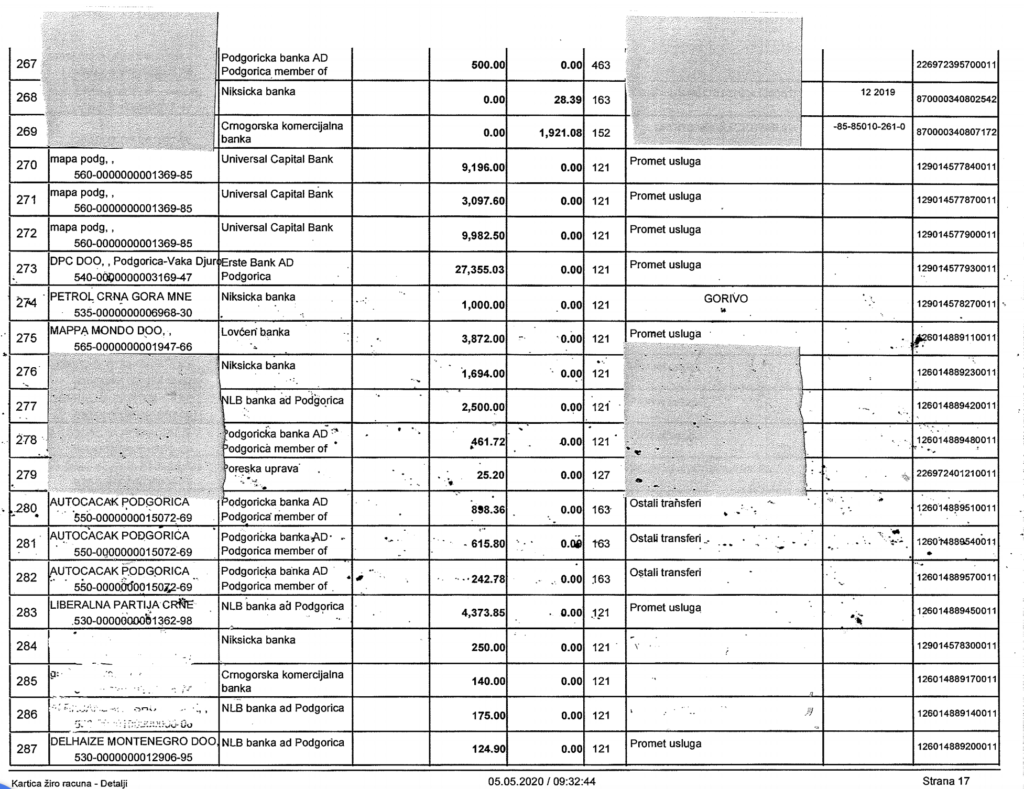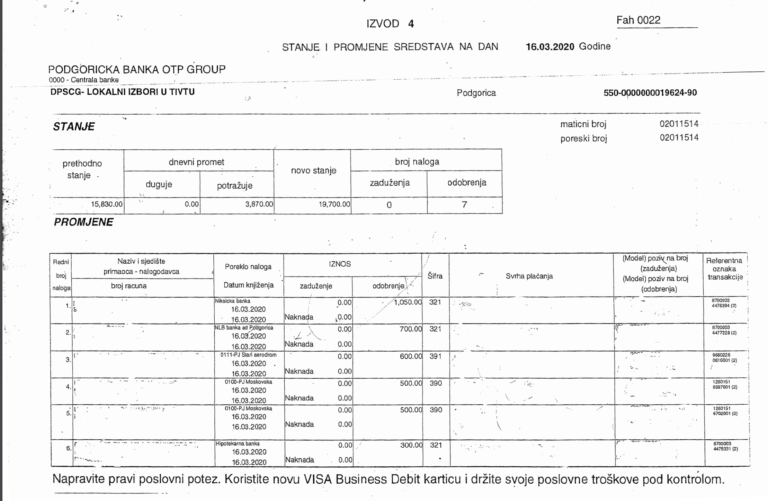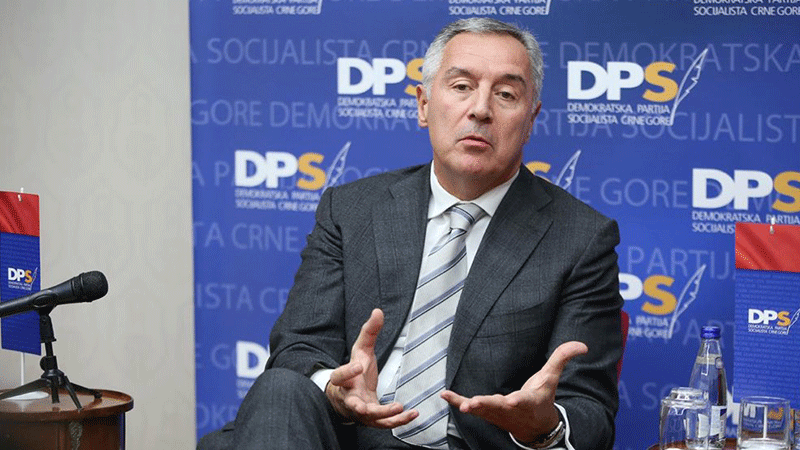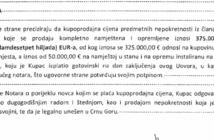Less than two weeks before the parliamentary elections, the Democratic Party of Socialists (DPS) continues to hide most of the data on its financial operations, including the costs and sources of its financing, according to the documentation obtained by the MANS Investigative Centre based on the Law on Free Access to Information.
Since the beginning of the year, MANS has asked DPS, as a reporting entity of the Law on Free Access to Information, for copies of statements from all accounts, which for the period January-May show that this party deleted data on most transactions made through the account.
DPS deleted data on costs, most suppliers, as well as almost all information on inflows to its bank account, justifying such actions by alleged protection of personal data. The party’s decision, which was submitted to MANS along with blacked out bank account statements, states that the deletion was made in order to “protect personal data related to racial or ethnic origin, political opinion, religious or philosophical beliefs or membership in trade unions.”
Despite that, DPS did not stop at deleting data on natural persons, but most of the data on legal entities with which DPS did business, including the purpose of payment and invoice numbers, also “disappeared” from the statements.
When it comes to inflows to DPS’ bank account, almost all data, including those related to inflows from the state budget, have been declared secret in this way. Thus, it is not possible to determine who provided financial assistance to this party, while some payments amount to several thousand Euros.
The statements obtained by MANS refer to the first five months of this year, while DPS ignored the requests for information on its finances which refer to the period immediately before and after scheduling of the parliamentary elections. This period is precisely problematic from the aspect of transparency of the finances of this party, bearing in mind that in just a few weeks, DPS recorded an inflow of nearly half a million Euros to its account on the basis of the so-called individual donations from natural persons.
MANS urged all parties to make their finances public during previous parliamentary elections as well, and data from the bank account were key to revealing “Vrela Ribnička” affair, which confirmed the existence of an organized scheme for inserting cash of unknown origin into DPS’ bank account. After that, DPS stopped submitting transaction data to MANS, thus, there is still no information on how that party collected additional €170,000 in the last two weeks of the 2016 campaign.
Bearing in mind previous practice, and the already disclosed data on suspicious donations, it is to be expected that DPS will try to conceal the data on transactions through bank accounts in this year’s pre-election period as well. For all such submitted data, MANS has already filed lawsuits before the Administrative Court of Montenegro.
Dejan Milovac
MANS Investigative Centre
Data on donors of local elections in Tivat also deleted
Data from the special DPS’ account for the local elections in Tivat, which were postponed due to the corona virus epidemic are among the deleted data. On that occasion, DPS collected close to € 13 thousand, and CIN-CG’s investigation showed that most of them were donations from high-ranking DPS officials from Podgorica, and not voluntary contributions from the citizens of Tivat. MANS pointed out back then that this was a practice repeated from the previous elections, and the same mechanism for inserting cash that we had the opportunity to see shortly before the 2016 elections.
So far, DPS has not yet denied any of the discovered cases of such scheme, including “Vrela Ribnička” affair, donations from social cases in Berane, and employees of public companies from Podgorica and Danilovgrad, while data on donations for the 2020 elections show that the party uses alleged voluntary donations of citizens in order to include money whose origin is unknown in the official financial flows of their election campaigns.
Parties are obliged to publish information on their finances
Political parties in Montenegro are obliged to implement the Law on Free Access to Information because their work is predominantly financed with money from the budget, i.e. by the citizens of Montenegro. The publicity of party finances is especially important in the pre-election period when taking into account the context in which the elections are held, but above all, strong suspicions about the origin of that money. Following all the aforementioned scandals, especially the “Envelope” affair, which clearly confirmed that the ruling party is partly financed from dirty money, there is a huge public interest in clearing up all suspicions of this type of political corruption. One of the key tools for that is precisely the Law on Free Access to Information, which obliges political parties, and enables citizens, civil society and media to have full information on who is behind the tens and hundreds of thousands of Euros that flow into the accounts of political parties.




